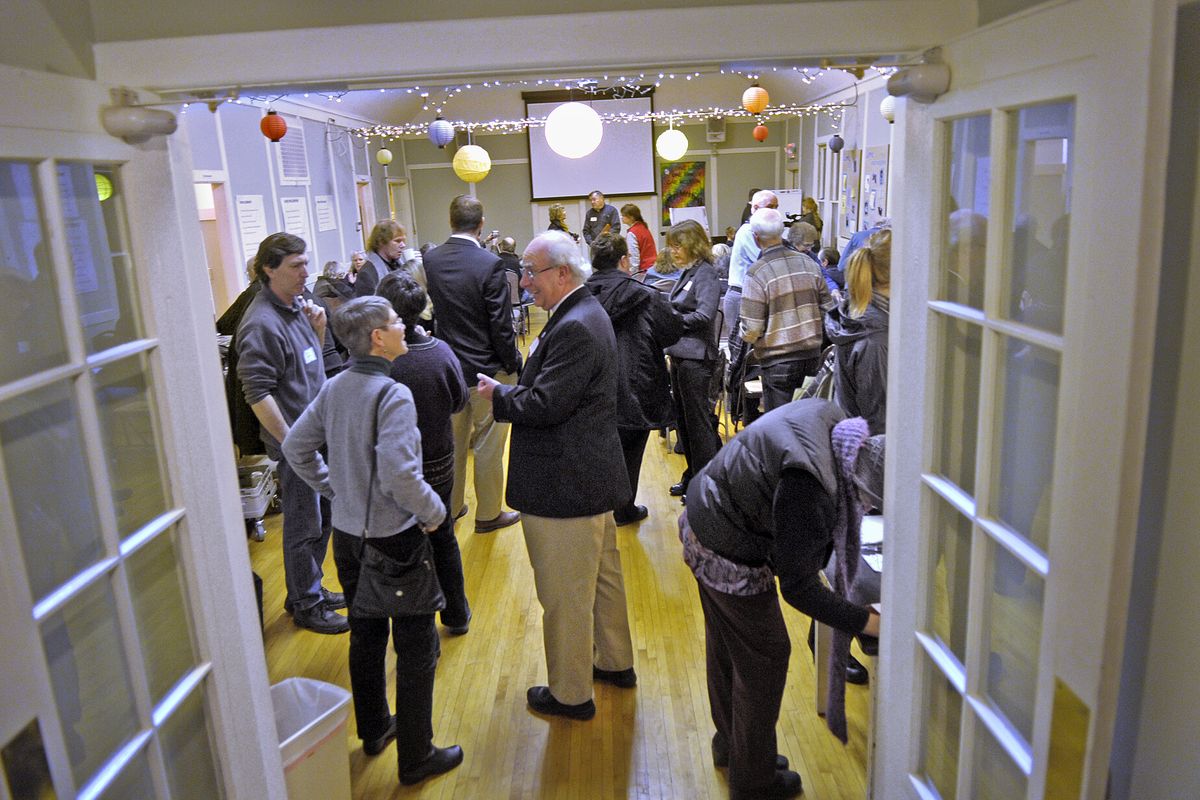Cuts spur pushback
Pastor says churches have biblical mandate to address cuts

Social service providers, clergy and people of faith gathered in a West Central neighborhood parish Thursday evening to try to head off further tears in the state’s already tattered safety net, or at least to brace for more bad news from the Legislature later this month.
“The answer is not to keep shrinking services,” said the Right Rev. Jim Waggoner, bishop of the Episcopal Diocese of Spokane, who called for enhanced state revenues and the closing of tax loopholes to support public services in these hard times.
Waggoner spoke to a crowd of about 100 people at Holy Trinity Episcopal Church, 1832 W. Dean Ave., where the pastor, the Rev. Kris Christensen, has seen a marked increase in the number of hungry people attending her parish’s free meal program.
The gathering was an effort by people of faith to send a message: After more than $10 billion in state cuts in three years, the capacity for private sector charity to close the gap in public services has reached its limit.
Christensen said churches have a “biblical mandate” to voice its concerns about these cuts.
“We do well with the hand of compassion, but we need to match it with the hand of justice,” she said.
Later this month, the Legislature will meet in special session to address another shortfall in state revenue, forecast on Thursday to be $1.2 billion.
Gov. Chris Gregoire has suggested further reductions in services, including elimination of the Basic Health Plan, an end to medical services to people formerly enrolled in Disability Lifeline and substance abuse treatment, elimination of services to disabled and elderly residents, reduction of subsidized child care for the poor and further cuts in Temporary Assistance for Needy Families.
The proposed elimination of state food assistance would affect 3,600 people in Spokane County. The program pumps $11 million into the local economy each month, according to Betty Sweeney, of the regional office of the Department of Social and Health Services.
This would drive even more people to food banks and free meal programs run by private nonprofits, said Steve Nash, board president of Shalom Ministries, which now feeds more than 3,900 people a month, up from 3,000 last year.
“The numbers are incredible and all these cuts just add to our numbers,” Nash said.
Marilee Roloff, CEO of Volunteers of America of Eastern Washington, said the difference between this recession and the one that struck in the 1980s was that “in the ’80s, we still believed in taking care of the poor. There is a new attitude today.”
Waggoner called on the community to renew its efforts for the common good.
“It really is a matter of life and death,” he said.